I never quite understood my sister’s admiration for flowers until a national pandemic swept the globe. After arriving back in the States from a semester abroad in Uganda, my sister and I found ourselves quarantining in the middle of nowhere Pennsylvania. As I’m sure many experienced, the shutdown period made it immensely challenging to find reasons to be grateful.
Given this dilemma, Ashley had an idea. She decided to make a gratitude garden. Every day we picked one thing that we were grateful for, wrote it down on a paper-cut-out flower, and then taped it on the wall. Our kitchen wall became full of lively and vibrant flowers of every shape, size, and color. It was beautiful.
Over time I began to reflect and introspect on the notion of gratitude. It didn’t take long to recognize that the absence of experiences with friends, lack of places to go, and zero opportunities to see people made for a very challenging time brainstorming things to be grateful for. I felt like I was writing down the same things or, when I found something to be grateful for, it took a while to find it. And then, I began to ask myself questions about gratitude, flower gardens, and the relationship between them.
You see, each written gratitude – be it small or large– was a constituent to a larger narrative. Though a flower be small, it contributed into creating a garden, lively and unmistakably vibrant. Thus, it’s fair to say that a flower marked with a singular gratitude didn’t just die or become forgotten once we taped it on the wall, but rather served as a long-lasting fingerprint of God’s goodness in the larger picture.
As I reflected on my time creating the gratitude garden, I not only realized that being grateful fell into a moral obligation, but I also became increasingly interested in the difference between something that made me happy verses something that made me grateful. In the former and the latter, I recognized that gratitude has more to it than sheer duty and happiness. It was too reductionistic and superficial to say that gratitude was professing things that made me happy. I tried to find the good in my days – which was based off experiential happiness - and titled it as gratitude. The presumption behind this method of thinking presupposes that happiness, or gratitude, is a feeling.
So, I found myself stuck here: What is the beginning framework and foundation point for a grateful heart if it’s not entirely based on the feeling of happiness?
I’ve chewed on this question since the pandemic. More recently, since being a Raleigh Fellow, I’ve began to think about the theological implications in the true essence of gratitude. I am reminded of the suffering servant, Job, when he shaved the hair from his head, tore his rob off and exclaimed to God, “‘Naked I came from my mother’s womb, and naked I will depart. The Lord gave and the Lord has taken away; may the name of the Lord be praised’. In all this, Job did not sin by charging God with wrongdoing “(v. 1:20-22). Jobs response to trails ought to inform us about our perspective on gratitude. Instead of cursing God for everything he lost, Job tore off his garment, fell to the ground, and worshipped God, professing that his greatest gift was Christ.
I suggest that the vignette of Job ought to be our starting place in gratitude. Within twenty verses, we see Job lose his livestock, servants, and family, yet still gives glory to God. Talk about a faithful servant. Job’s loss suggests the everything we have in our life is a loan. That’s right – a loan. We must treat our lives like a loan, where we acknowledge that our resources, skills, competences, and entire beings are a gift from God. Gratitude, then, is not a mere experience of happiness, but a heart posture of humility which then turns into a profession of gratefulness for the Lord’s workmanship. It’s more than just benefiting from what God gives but delighting in the beauty and greatness of God’s character through His created and creation. Thankfully, there are many things in our physical world that reflect His nature, to which we must recognize and give thanks to God. Therefore, I think it’s fair to say that happiness does play a role in gratefulness, but maybe it’s not necessarily the beginning point. I think the beginning point is like Job’s heart posture when he knelt before the Lord. It’s ultimately professing that the truest and greatest gift in our life is in the salvific work of Christ.
So, in the flower garden metaphor, our admiration for the gift of salvation is like fertile soil, the substance in which enables flowers to grow. We need nutrient-rich soil to grow strong, healthy, and life-giving flowers. Flowers, then, are the product of a grateful heart. So, brothers and sisters, I encourage you to join me by embracing a heart posture like Job. My hope is that my heart (and your heart as well) is like a flower garden, physically marking the things that the Lord has gifted to us, and in response, we give God the glory for the provision of such gifts. And, if we so dare choose, make the conscious effort to welcome visitors in that space and share our flowers. Allow your flowers to produce an aroma so vigorous that it welcomes others in your garden, so much so, that they would be drawn to Christ.
A closing prayer:
Father, we pray that your Son’s atoning work would be our greatest gift. We humbly pray that we would begin to cultivate soil that fosters healthy living conditions for flowers that would bloom in such a way that gives true radiance and glory to your workmanship. May we learn to be grateful with little and grateful with plenty. Amen.
Kris
